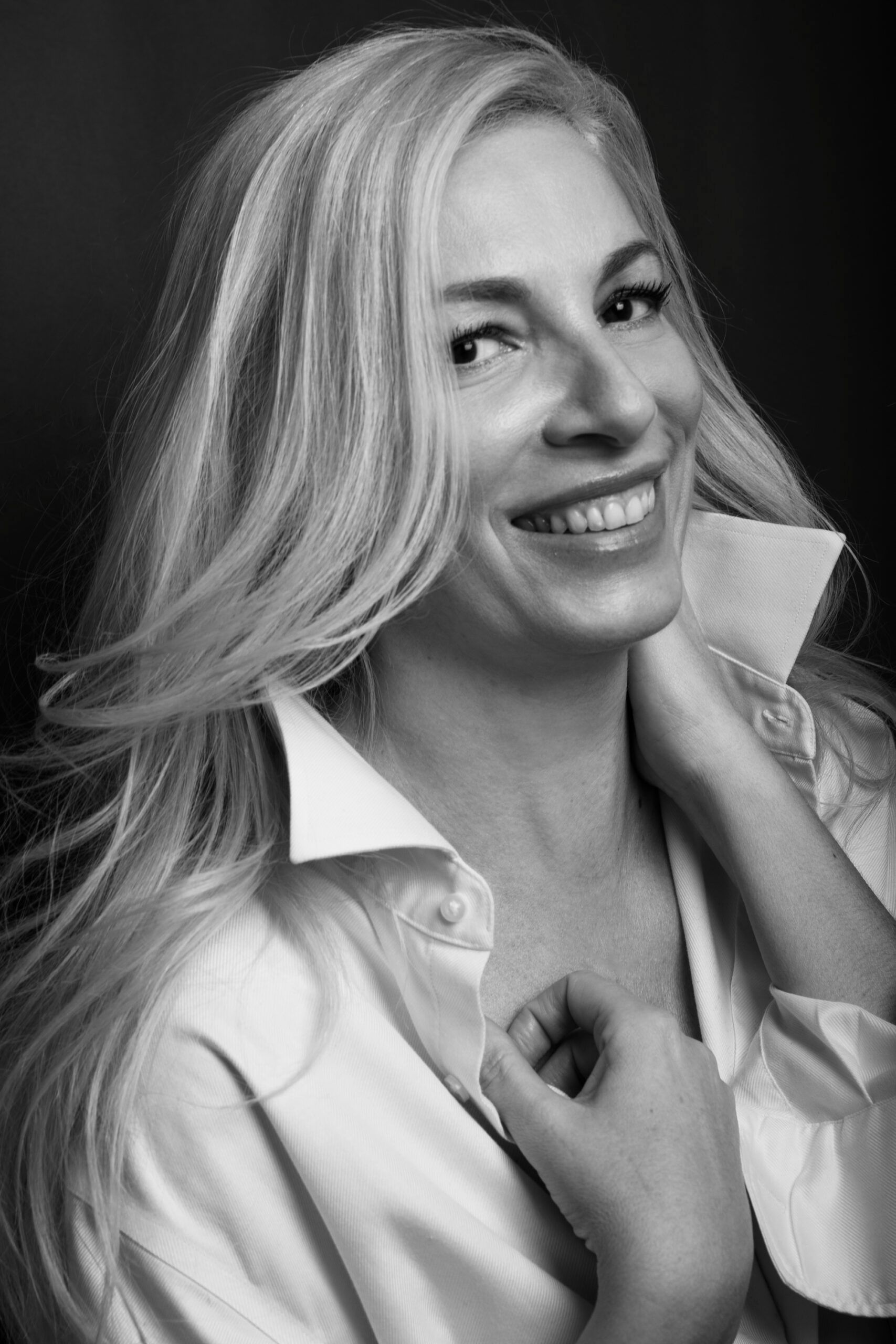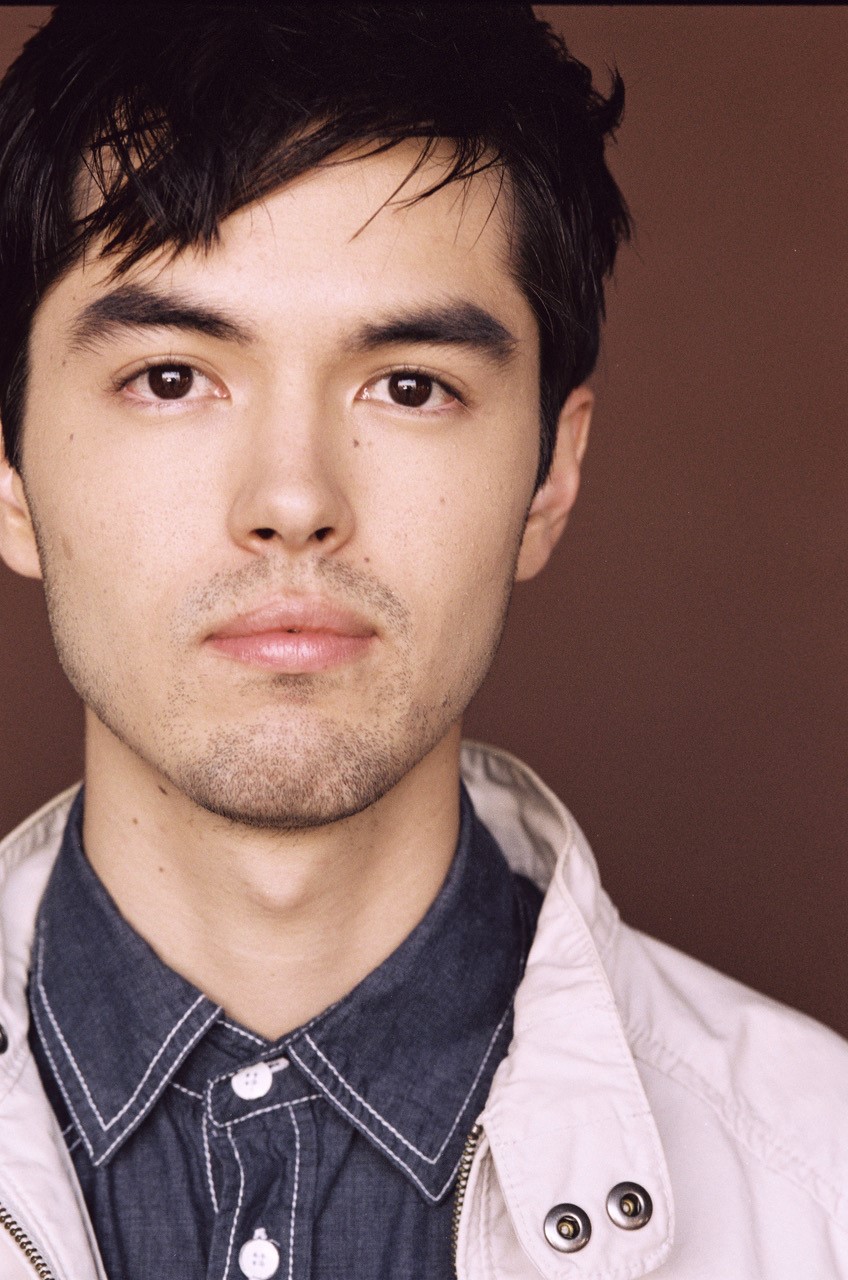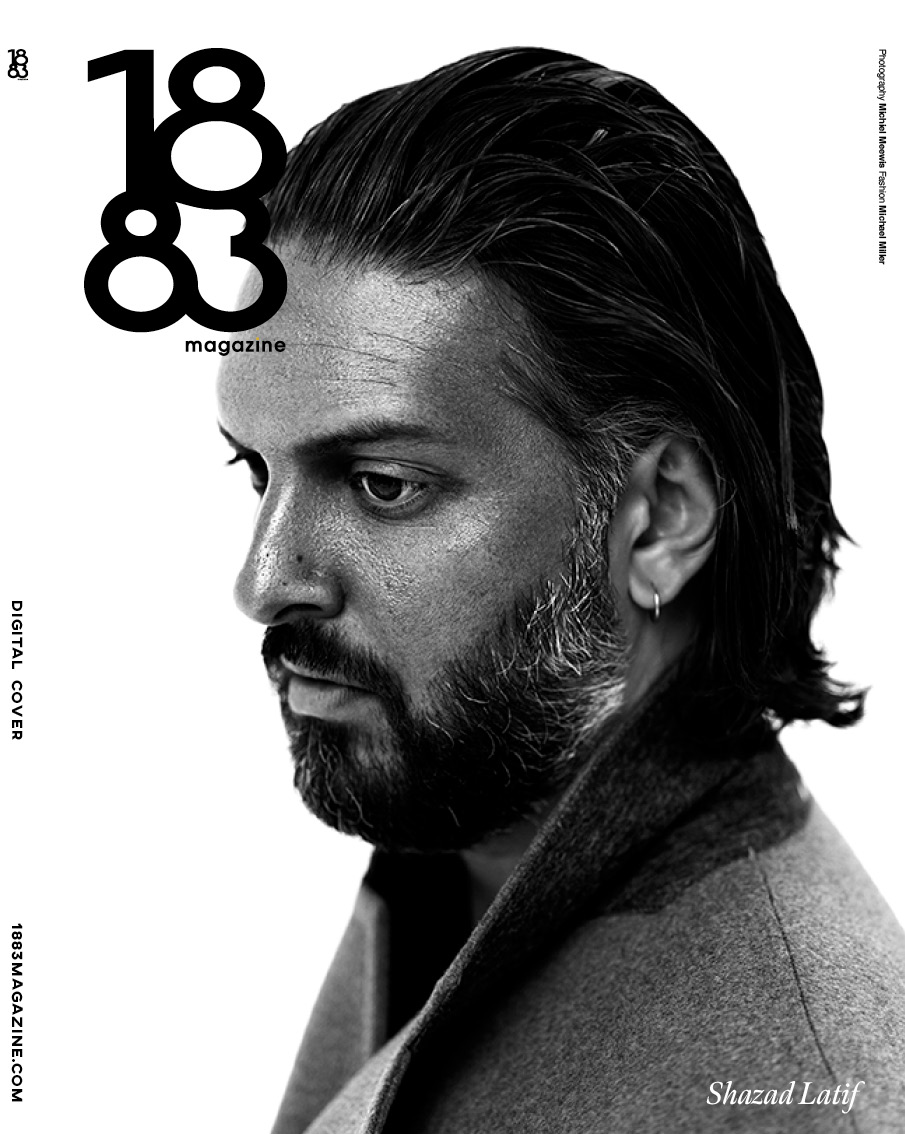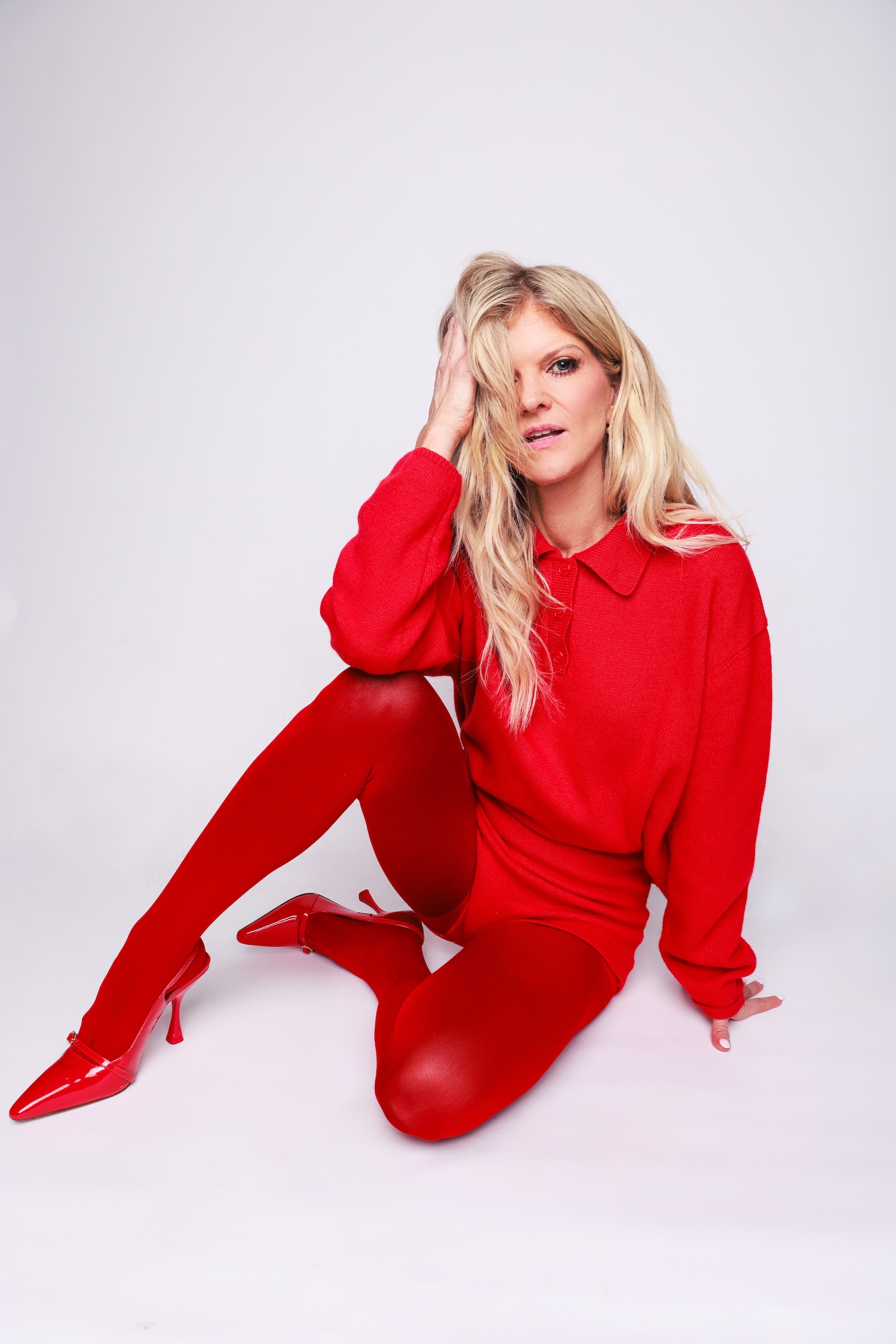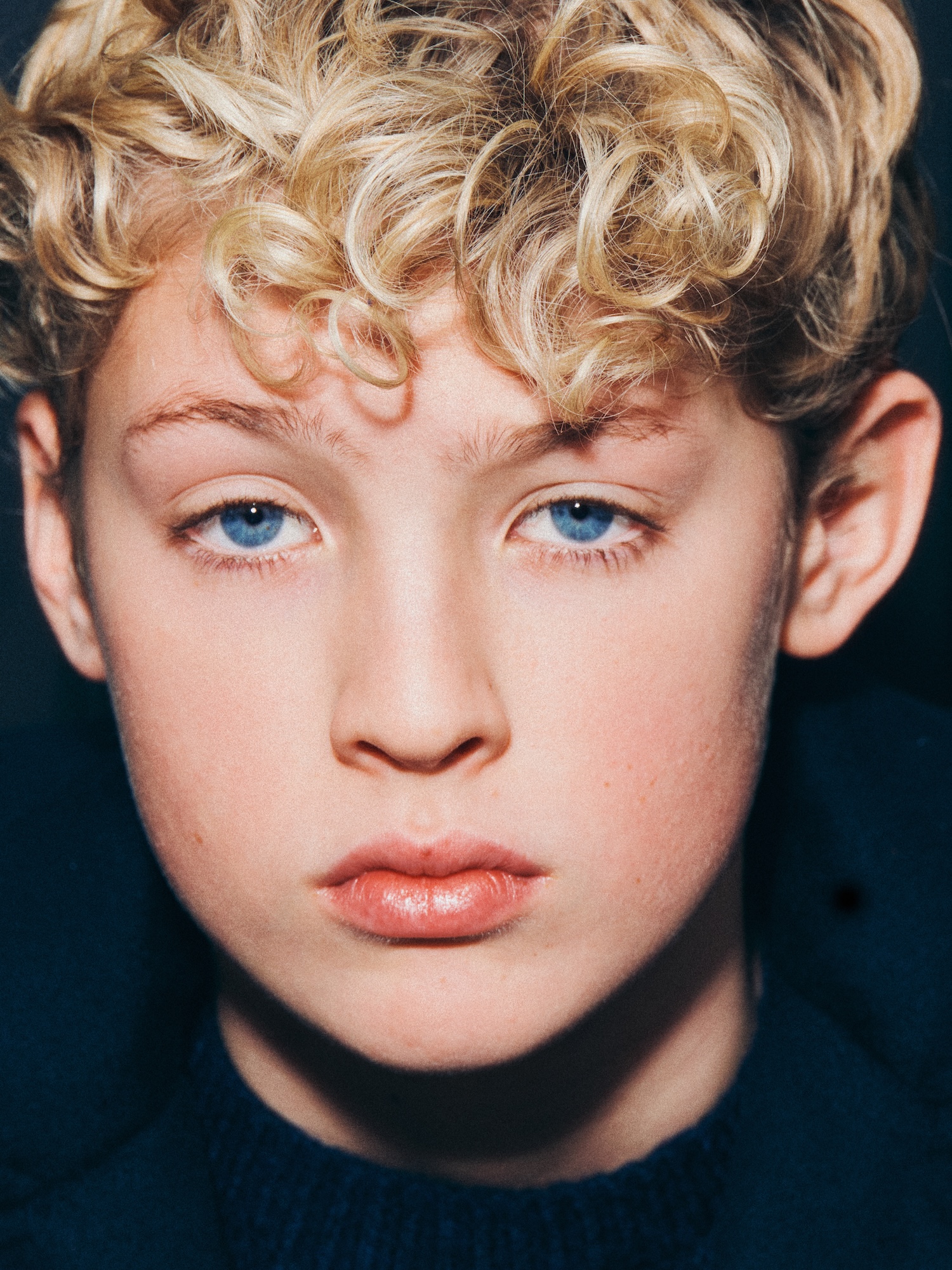For the Italian creative powerhouse, Livia De Paolis, the film industry is in her DNA.
Ever since Livia De Paolis’s early childhood, she can fondly recall memories of growing up on film sets, getting to play on them as a child and generally being exposed to the wondrous process that is filmmaking, thanks to her family’s studio structure business which was located in Rome from 1941 till 1991. So naturally, De Paolis has an undying love for the film industry. Over the years, the creative has built a respected and accomplished career as an actress, director, screenwriter and producer. If you can think of anything related to the arts, then Livia De Paolis may have done it. After moving from Rome to the concrete jungle of New York, she has performed numerous times at Richard Foreman’s Ontological Hysteric Theater and the title role in John Patrick Shanley’s one-act play, Veronica. The multitalented individual has also been involved in theatre production, produced, directed and written both short and feature-length films such as the 2013 short entitled Awestruck and her 2014 feature Emoticon ;). Awestruck was picked up by Shorts International for broadcast and digital distribution in the United States, Europe and South Asia, whilst Emoticon a film about love and intimacy in the digital age was distributed theatrically in the US.
But now, Livia De Paolis is ready to show the world her most exciting project yet, her sophomore feature-length effort, The Lost Girls. It’s an ambitious project that has seen De Paolis write, direct and act in alongside fellow cast members Vanessa Redgrave, Joely Richardson, Iain Glen, Parker Sawyers, Julian Ovenden, Emily Carey, Ella Rae Smith, and Louis Partridge. An impressive array of new and older talent. The film itself is inspired by the world-renowned J.M Barrie classic tale Peter Pan and the 2003 novel Lurie Fox. The Lost Girls chronicles four generations of Darling women as they struggle in the aftermath of their adventures with Peter Pan in Neverland. Throughout the film, it touches upon human psychology and aspects of family trauma. Undoubtedly, the premise of the film combined with De Paolis’s talents, means that it will be a film you really need to look out for. In conversation with 1883 Magazine, Livia De Paolis discussed The Lost Girls, her earliest memories of growing up in the film industry and more.
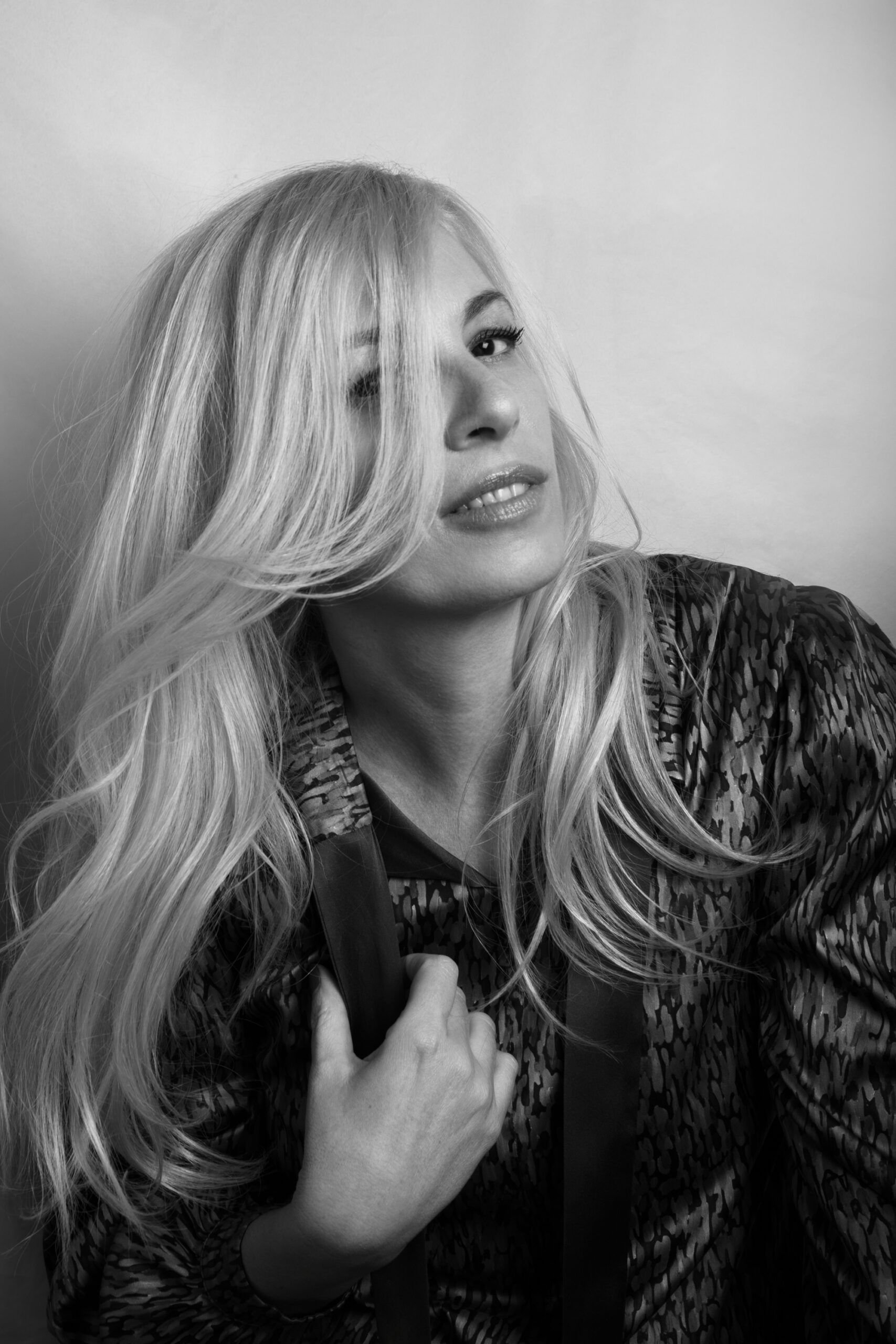
Hi Livia, your new feature-length project, The Lost Girls, is releasing in cinemas, altitude film and other digital platforms from tomorrow, June 17th. I can imagine that the writing and directing processes for the film were incredibly interesting because we haven’t really seen this premise explored before on the big screen. It’s a film based on the lore-surrounding Peter Pan and primarily focuses on four generations of the Darling women and Wendy’s adult life after Pan. Could you please tell us what inspired you to make this project and what you are most proud about it?
Okay, so I was inspired by a book that Laurie Fox wrote called The Lost Girls and the movie is inspired by and adapted from the novel. I read the book back in 2003, which is a lot of years ago and I really loved it. It really resonated with me on a personal level. At the time, I wasn’t thinking of being a filmmaker. I was trying to be an actress. But I still thought that the book would make a beautiful film And as a longtime lover of the classic tale, I was immediately like: ‘Oh, this is new and it could be so beautiful. I didn’t think about making a movie for it until 2014, so essentially 11 years later. I had made my first feature film and it had released, I was looking for my next project and I thought that this is my next film. I just loved it. Some people have said the film is timely and there is clearly almost a political way of looking at this retelling of the story but my main motivation has always been very personal.
In my life, the personal and the political areas kind of merge a little bit, but the approach with this film has always been extremely personal. I’m immensely proud of the film because of the cast and their performances. The thing that I enjoy the most as a director is really working with actors. It was just a challenge so it gave me great satisfaction to work with actors of different ages, generations and a different time haha. Everybody is really great. So I’m really proud of that. I also have to say that I’m immensely proud that I was able to kind of pull it off. It’s not an adventure-fantasy young adult film. It’s a very complex intellectual psychological film. And as a filmmaker, I do feel that I have accomplished something in telling a story that is mostly internal.
It takes a lot of skill to direct, write and act. In The Lost Girls you play the adult version of ‘Wendy’, so for anyone who doesn’t know the film industry can you explain how you were able to do all three parts? A lot of people may imagine that the director is always behind the camera.
Yes, first of all, I’m not the only one, It’s been done before by several men and women. But in my case, the writing and the acting are melded together through the process of writing. I would work up workshop scenes within the context of like an acting workshop. I’ve taken a ridiculous amount of acting classes in my life, so I have some teachers that I can always go back to, where I step into the class and cast people on the spot and work out the scene in the context of the class. So I would do that and then I will go back to re-writing the script again. As the movie is intellectual that process gave the script more of a raw, genuine, and experiential feel. This is because the script is based on a book which is based on a book which is also based on a literary piece. So Peter Pan speaks in a certain way and in order for that to feel real, it was important to see actors… it’s almost like doing a read-through of a script but you’re doing it with yourself. So that process happens before you get on a film set.
Also, I’m not in every single scene of the film as it’s an ensemble piece. My character is the lead character but you see Wendy throughout her life, so you see different actors play the young Wendy, teenage Wendy, and the adult Wendy, which is the role that I play. So if I’m in the scene, if I am an actor that day, that practically means that I sleep less because I have to show up on set a little bit earlier to get my hair done and to spend the extra time that I need to dedicate for getting ready. Then all conversations that a director has to have with the actors regarding their roles have to happen before we actually film. So there is a little bit more prep that needs to happen with the other actors. There is also a lot of preparation that happens with the director of photography, so a lot needs to happen before a scene is shot. We would then film a scene, a few times. I never do like that many takes to be completely honest with you because of budget restrictions but also because it’s never been necessary. I’ve been very lucky. I have made two feature films both times I worked with very good actors. So I never felt the need to do that many takes.
But let’s say I would do three takes in a row and sometimes I would film the rehearsal of the scene because something very spontaneous can happen in the rehearsal and then it couldn’t even really be replicated. So in the editing process you can use those bits, right. We shoot scenes a few times without cutting, we would cut only if there was an obvious mistake or if something went really wrong like a technical problem. Otherwise, I would not cut the scene for a lengthy amount of time and then when I eventually do end the scene, I would then walk over to our monitor and watch for a few minutes and examine if anything needs changing. And then we’ll go back and make the corrections. So I kind of direct myself after that to make improvements but I also have some trusted people that are also like ‘I think you got the cut!’ haha.
You’ve enlisted a wonderful cast of talent for the film, starring alongside yourself there’s Vanessa Redgrave, Louis Partridge, Emily Carey, Parker Sawyers, Iain Glen and more. What have been your personal highlights from working with the rest of the cast?
As mentioned earlier, I would just have to say the experience of working with the actors. It was a challenge and a privilege to have the opportunity to work with them. Take Vanessa Redgrave for example, she’s a giant and she’s also a woman in her 80s that is acting. It is a challenge to act at every age. She even sings a bit of a song in the film and that was really something to watch. On the other hand, we have actors like Joely Richardson and Iain Glen who are both just fantastic. Everybody brings a different approach to acting. As I said earlier, I took a ridiculous amount of acting classes because I really just love the craft. I learned over time that different actors are different people and different actors need different things. So when you’re direct as a director you can’t talk to everyone the same way because some people need more attention, some people need less attention, some people need to be told certain things, and other people need more space to explore it on their own and so on. So I guess it has been really interesting to try and figure out how to work with different individuals. It’s so fun learning how to work with different individuals.
With the younger members of the cast, they auditioned for the film. So when you get to audition actors you already start that learning process right away. You learn willing they are to try things, you see what they respond to and more. I’ve always found auditioning to be the hardest thing to do, especially with young actors. I always feel for them and I’m in awe of the professionalism of these teenagers showing up and really performing in the audition. So that was great. With the more experienced actors, you can’t get them to audition, so I would watch a little bit of their work if I wasn’t already familiar with it, and then I would watch some interviews in an effort to get the feel of the person because ultimately you’re working with a person.
We need to talk about how the film business is essentially in your DNA. For anyone who doesn’t know, from 1941 till 1991 your family ran the film studio structure, DePaolis I.N.C.I.R. So out of curiosity at what age did you realise that you wholeheartedly wanted to work in the industry and what is your earliest memory of film?
Right, so I think I wanted to be I always assumed that I was going to be an actress. When I was younger and people ask me ‘what are you going to be when you grow up?’ And my answer was either be ‘an actress or a veterinarian’ because I like animals.I didn’t really know what it meant to be an actress in terms of practicality but I knew that an actress acted in a film. So that’s what I wanted to do. So it was a studio structure it was a lot with theatres, there were building sessions within the theatres where they would build the scenes. Like pieces of street interiors or whatever the movie set needed to look like. So that was the family business. My grandfather was the guy that founded it, and then my father ran it along with his sister. They were not artists, they were business people. They were renting out these spaces and then they were providing the movie set.
They built the sets but they didn’t design them, they worked with set designers. So my dad would take me to play… these sets were a huge playground for me over the weekend, when they were shooting and sometimes if they were shooting, they would take me around and show me everything. I remember when I was really young and tiny and they were shooting a commercial. It was some sort of food l and they were making a salad, they had a cucumber for it and I really wanted it. So my dad encouraged me to go ask if I could have it and I was running to go ask for it but I was so excited and I tripped over a cable and fell over. It was horrible.
So that is an early memory that has stood with me, I still blush when I think about it. Another memory I have was from on a set, It was like a horror film from Dario Argento. I remember playing on the set with a friend and we accidentally broke a little bottle which was a prop. So my dad was very concerned haha. Another memory I have from when I was older, my aunt was in the jury of judges for the David di Donatello awards which is the biggest award for Italian cinema. At this point, I was a young teenager at 12 or 13-years-old and my aunt took me to one of the screenings for the award and I was sitting next to the big Italian actress, Monica Vitti. It was a big thing for me. I was completely starstruck. She worked with directors like Michelangelo Antonioni but she also did a bunch of Italian comedies. She passed away I believe last year but she was just divine and really beautiful.
Thank you for sharing they were some really interesting moments! But the big question is… did you get the cucumber in the end?
I did!
What would you say have been the biggest lessons you’ve learnt as a filmmaker from your time making your short film Awestruck and first feature-length project, Emoticon 😉? And how have you implemented those lessons on The Lost Girls?
So actually I made my first feature before I made Awestruck. So that was the second thing I did and the first was the feature film. I think every single time you make something, you learn something. With Emoticon, I really didn’t know what I was doing. I kind of figured that I was able to direct the film and once I had made it… I remember thinking ‘oh my god, what have I done?’ I didn’t even know what to do with it. I was worried that I wasn’t going to be able to edit it. But then I went through the editing process and I and I figured that ‘oh, I do have a film. I can actually do this.’ After realising that, I really enjoyed it. After that, I really wanted to make something again as soon as possible. I really caught the bug and that’s why I made that short film because I couldn’t make another feature. I didn’t have it in me and I didn’t know what money is, but I just really, really wanted to do it. So I did that film Awestruck before Emoticon was actually released. And so that’s why it looks like I have done Awestruck before Emoticon but I had actually done it after. From my projects, I have learned that you never have enough time to prep. So in my next feature, I want more prep time. You think it’s enough and it’s never enough. I think you can always use more prep time.
I’ve also learnt that with actors there have been different processes but some have been similar. With Emoticon, it was a micro-budget. It was just crazy. The making of the film was so chaotic and intense. So I learned that I do not want to make a micro-budget film again haha and I do not want to be under such pressure. I don’t want to suffer through the process that much anymore and I do not want to do six days shoot; As in a six-day shooting week. It’s not possible. I could do it for one week but for the other weeks of shooting, you need two days off. I think I paid more attention to the editing with The Lost Girls but I think with Emoticon I must give up at some point when it comes to the editing. You edit so much and then you just think ‘okay, this is done.’ I did not do that with The Lost Girls, I really worked hard on the editing. But I guess with The Lost Girls I had a better idea of what I was trying to achieve.
I went in thinking I’m trying to do this, with emoticon I just really didn’t know, I tried a lot of different things. Obviously, I convinced enough people that I was able to do it and I had some kind of an idea but with The Lost Girls, I was much more specific in the choices that we made ahead of time. And so as a result, the movie very much looks like the lookbook I put together. I put together a number of images, like a mood board and then when we finished the film. I went and looked at the mood board again and I was like ‘wow, it’s incredible how similar the images are’. So I was much more intentional with The Lost Girls.
As mentioned you’ve always been fascinated with the hidden meanings of fairy tales since childhood. Hypothetically if you could help reinvent or reimagine another classic fairy tale, what would you like to try your hand at?
Oh my god, I think it’s the one that’s been done and redone so many times but I think it is fascinating. My choice would be Little Red Riding Hood. It’s not because I would want to do a feminist take on it, the innocent of the tale is what I find really interesting… I don’t know what it is. I can’t even explain it really haha. It’s just how it hits my imagination, right? The reason why I get interested in something… it is not necessarily that intellectual to begin with, and I think that’s a good thing. You can find all the intellectual reasons and you can analyse it and be like ‘oh, actually the archetype of the wolf and the archetype of the innocent little girl, what if we turn it around…’ but that comes later. But I haven’t really thought about doing another one at this point in time.
Of course, this is just a hypothetical question…
If you asked me what my two favourites were growing up were Peter Pan and Alice in Wonderland. I would not redo Alice in Wonderland. I don’t feel the need to do that. So when I think about I think Little Red Riding would be very fun to do.
It’s so awe-inspiring to see you’re part of a collective of female feature directors called Film Fatales, and the collective is all about championing and collaborating with each other. What advice would you give to other women starting out in the industry?
I would say that you need to put your foot down. You should be diplomatic because obviously, it’s a privilege to be able to do any kind of creative work. So there has to be an acknowledgement of that privilege and a sense of gratitude for it. But also… it’s very easy to be told what to do and to be treated a little bit like ‘you don’t know, let me tell you’. I don’t think that is necessarily for the best of the film because the point of view is something that is important. I believe it’s important to have a number of different points of view in order to be able to have a cultural dialogue. Say the executive or the more experienced people which tend to be older men… if you get told that this is how it’s done, then your voice and your point of view will not come across in the film and that will be a loss because it is important to have a different point of view. So my advice is to try as best you can to put your foot down and believe that what you can be relevant.
Finally, after the film lands tomorrow, what’s next for yourself?
I’m very happy to tell you that I was cast in a role for a film by Katherine Hardwick. It’s shooting in Italy but I am very happy. It’s with Toni Collette and it’s a studio, I’m really grateful that it worked out that way. These are women that I absolutely admire, so do just be on set and have that experience is great. So that’s one thing and then I have a couple of projects that I’m attached to as a director. So these are projects that I did not write. But they’re not a go yet so I cannot share much about them but I’m hoping that something will go really soon. Lastly, I am writing an adaptation of a book, it’s a ghost story called The Last To See Me by Mylene Dressler.
The Lost Girls is out this Friday. Follow Livia De Paolis @liviadepaolis
Interview by Cameron Poole
Photography by Jemima Marriott
Styling by Jo Shippen
Hair and Make by Emma Osborne

